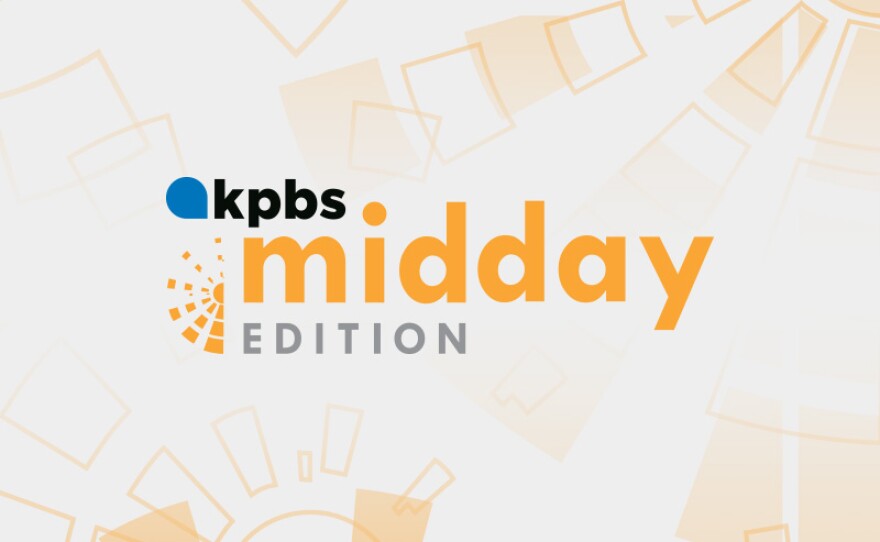San Diego Community Activist Tasha Williamson Shares Experience With COVID-19
Speaker 1: 00:00 While incredible events were unfolding and national news this week, the COVID-19 pandemic surge continues. San Diego County reported the third highest number of new Corona virus cases in its update. Yesterday 3,850 new cases, a record number of hospitalizations and 47 deaths yesterday. The number of daily COVID deaths across the country had a record of more than 4,000. Today, we bring you one San Diego Ann's experience battling the virus since the pandemic started former mayoral candidate and community activist. Tasha Williamson has been working with the unsheltered and communities hit hardest by this pandemic, but her COVID-19 work was put on hold after she contracted the illness and was hospitalized. Tasha Williamson spoke to midday edition, cohost, Jade Heinemann while still recovering at home. Here's that interview Speaker 2: 00:56 First? How are you doing today? Speaker 3: 00:59 Uh, mum, my back is hurting just a little bit. It's it's hard. Um, you know, sometimes to still breathe, but I'm on oxygen. So it's, you know, I'm breathing, I'm breathing some, I'm thankful to be called a survivor. Speaker 2: 01:17 What were your initial symptoms like? Speaker 3: 01:21 Uh, initially it just felt like a, um, a head cold, you know, I, it was a lot of pressure, um, and my head and my, um, it felt like a sinus, like a really bad sinus infection and then it began, um, I began to have difficulty breathing. Um, and that's when I, uh, went to the emerge, the first emergency room and was tested, Speaker 2: 01:47 You know, hospitals across California are reporting, their ICU's are beyond capacity and that there are nursing staff shortages. What did you see when you were admitted into the hospital? Speaker 3: 01:59 When I was admitted, you know, there's days, I don't really, I couldn't move. Like I couldn't get up. I couldn't, all I could do was open my eyes and close my eyes. And, um, you know, that I think was the most difficult because you didn't know, you know, I didn't know if I was gonna make it. And you see the worried looks on the faces of the nurses, um, that come in and out, um, try and get you up. So you don't have blood clots and, you know, try and get you to eat something. Um, even, you know, trying to, you know, my veins were collapsing and blowing. Um, so the IVs which provided the life-saving antiviral medicine was, you know, difficulty even, um, keeping me. And so I was stuck several times, had to have specialists come in and find veins. And so this was a very life altering experience. Speaker 3: 03:11 Um, for me, those nurses fought they're definitely overwhelmed. My last day was the day that, uh, Los Angeles was beginning to run out of, uh, beds and oxygen and, uh, going to a protocol. I also heard that, uh, there were freezer trucks, um, that were here in San Diego, um, for the dead bodies, um, that were going to, um, be overwhelming to the city and the County. Um, and that was very shocking for me that, um, you know, we've, we've in essence become, or are becoming New York city. Um, and we've had, you know, ample amount of time. It, it feels to prepare. The people do have to, you know, be safe. They have to stay in, they have to social distance. I don't believe six feet is enough. I think we need better mass. I just, I think people need to be safe because trying to, to Bree, um, and not being able to is, is a life altering experience. Speaker 2: 04:44 I know that you are still on oxygen. I can hear the tank humming behind you a bit. Did they have to put you on a ventilator when you were in the hospital? Speaker 3: 04:53 No, I didn't. I didn't have to go on a ventilator. The nurses worked around the clock, even when they were releasing me. One of the nurses gave me an extra, uh, another, you know, another dose of the antiviral before I was released. Just to make sure that I could fight at home Speaker 2: 05:15 As you are recovering and the cases continue to rise. Is there anything you'd like people to know, Speaker 3: 05:22 Just be safe, be safe, social distance. Um, if you don't have to go outside, don't go outside. I know isolation is hard. We, we have to find ways, um, during this pandemic to help, um, help with the, the impacts of, um, mental health on us. Um, being away from human beings that we love and care about and, and even, you know, being able to fight for justice because there are still injustices that are happening, um, in this city and this County. Um, no one is talking about what is going on in the jails and those inmates, um, that are, are, you know, not getting the support that they need during COVID-19. They are preparing freezer trucks for them as well. Speaker 2: 06:22 I've been speaking with Tasha Williamson activist and former mayoral candidate Tasha, thanks for joining us. And I hope that you get better soon. Speaker 3: 06:31 Thank you.


